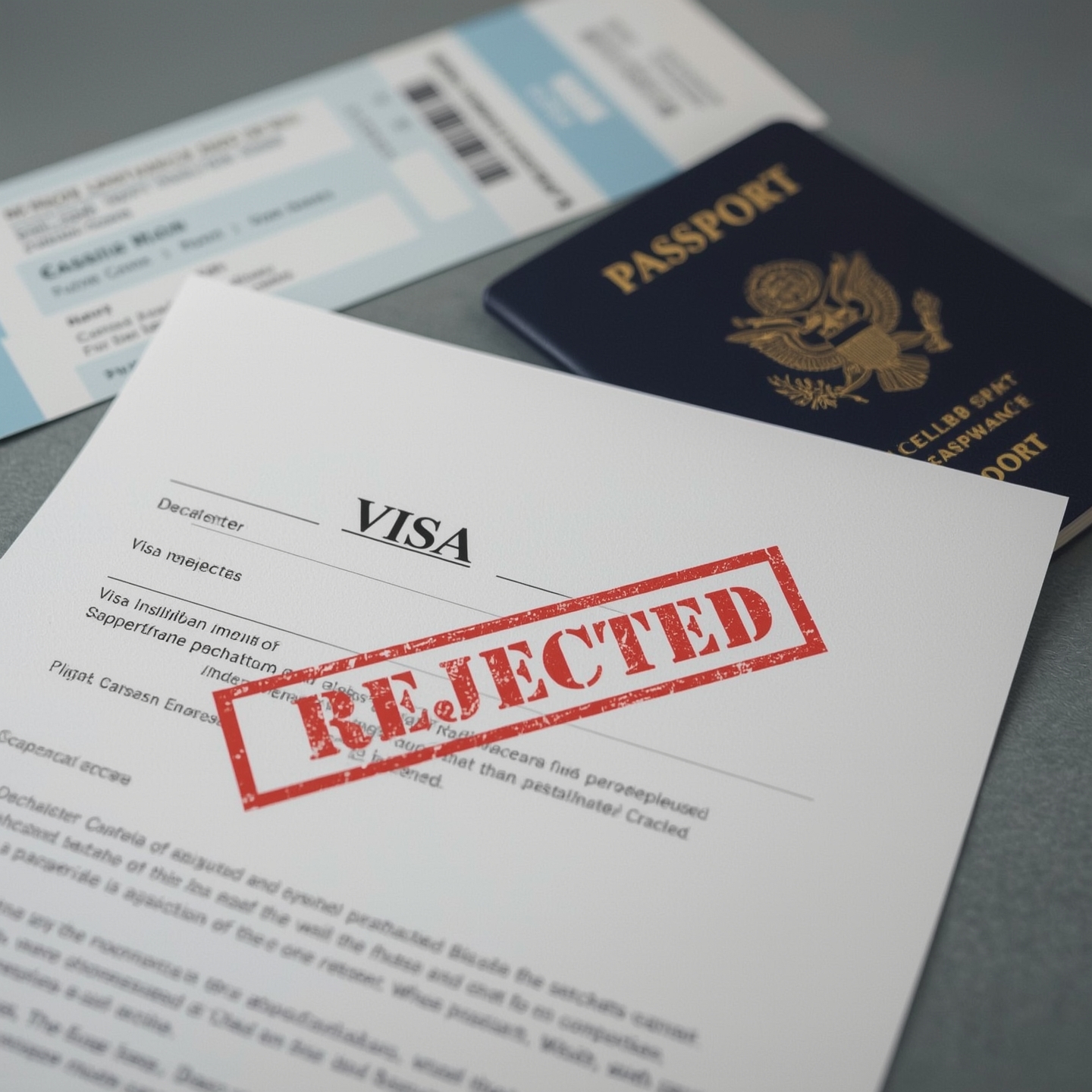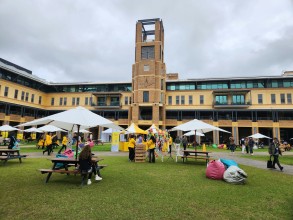News & Blogs
2025 Visa Mistakes: What Nepali Applicants Do Wrong With Their Documents

Introduction – Why Document Accuracy is Crucial for Nepali Visa Applicants to Avoid Visa Rejection
When you want to study in countries like Canada, Australia, or the USA, getting your student visa approved is the first big step to achieving your dream. But there have been cases of many Nepali students facing visa rejection just because of small mistakes in their documents. This can be very stressful and might delay or even cancel your dream of studying abroad.
That’s why it is very important for you to make sure that your documents are 100% correct and complete to avoid visa rejection, Even just one tiny insignificant mistake, like writing the wrong date of birth or forgetting to include a required paper can very well lead to visa rejection.
Many students want to know:
- Why did my Canada student visa get rejected?
- What are the Australian student visa rejection reasons?
- How can I avoid visa rejection when applying for the F1 visa for the USA?
- What are the medical reasons that can cause Australian visa rejection?
- What does “Canada student visa rejected: other reason” mean?
The truth is, most of these problems happen because the documents were not checked properly before submission.
Here are some real and common reasons for rejection:
- Missing documents like bank statements or sponsor letters
- Documents not translated to English
- Wrong or mismatched personal information (like name spelling, date of birth)
- Fake or unclear academic certificates
- Expired passports or incorrect visa forms
- Not showing enough money to cover your stay
If you want to avoid visa rejection, you must:
- Prepare your documents carefully
- Make sure to double-check every detail very thoroughly and properly
- Get help from trusted experts like our Global Education Counselling Centre (GECC)
GECC helps many Nepali students by checking their papers, fixing errors, and making sure everything is ready for a strong application. This increases your chances of getting a visa without problems.
Remember: When it comes to visas, small document mistakes can lead to big problems. But if you plan ahead and stay careful, you can avoid visa rejection and move closer to your dream of studying abroad.
To Avoid Visa Rejection: Common Document Mistakes Made by Nepali Applicants

A lot of Nepali students who want to go to school in Canada, Australia, or the US make small mistakes on their documents that cause their visas to be denied. You can easily avoid these mistakes if you know what to look out for.
Here are some of the most common mistakes students make when they apply for a visa that you dont want to make to avoid visa rejection:
1. Missing Documents
- Not including all required documents is a top reason for rejection.
- Example: Forgetting to attach your bank statement, SOP (Statement of Purpose), or English test results.
- Always make sure that you double check the full document checklist for your visa type.
2. Mismatched or Incorrect Information
- Names spelled differently in passport and academic certificates.
- Wrong date of birth, passport number, or course details in the forms.
- Make sure all personal details match exactly across all documents.
3. Fake or Doubtful Documents
- Submitting fake transcripts or bank letters can lead to automatic rejection and even a ban.
- Only use original or certified true copies of all papers.
4. Not Showing Enough Financial Support
- Not being able to show that you or your sponsor have enough money to pay for school and living costs.
- This is one of the top Canada student visa rejection reasons.
- Include recent, official bank statements, fixed deposits, or sponsor letters with income proof.
5. Poorly Written SOP (Statement of Purpose)
- A weak or unclear SOP can make your application look careless or suspicious.
- Write a strong, honest SOP explaining why you want to study abroad and your future plans. If you want to learn how to write such SOP then you should definitely check out our blog on “writing SOP”.
6. Expired or Soon-to-Expire Passport
- If your passport expires soon, your visa may get rejected.
- Renew your passport if it has less than 6 months of validity.
7. Wrong Medical or Health Documents (Australia)
- One of the Australian visa rejection medical reasons is submitting the wrong medical reports or not going for health checks on time.
- Complete your health examination at an approved clinic and upload reports as required.
8. Incorrect or Incomplete Visa Forms
- Making mistakes while filling your visa form online or leaving some parts blank.
- Double-check every form before submitting. Ask an expert if needed.
Bonus Tip:
Always have someone who knows what they're doing look over your whole visa file to make sure it doesn't get rejected. Our Global Education Counseling Center (GECC) has helped a lot of Nepali students avoid these mistakes by showing them how to do things one step at a time.
GECC makes sure that your application for a Canada student visa, an Australian student visa, or an F1 visa is strong, complete, and ready to be approved.
How to Prepare and Organize Your Visa Documents Correctly to Avoid Visa Rejection

One of the most important things to do when applying to study in Canada, Australia, or other countries is to make sure your visa documents are in order. A visa can be denied if you make a small mistake or don't send in all the papers. That's why it's so important to keep things in order and use the right checklist.
Here are some simple steps to help you get ready and organize everything just right to avoid visa rejection:
1. Make a Complete Document Checklist
Different countries have different rules. For example:
- Canada student visa requirements include GIC proof, LOA (Letter of Acceptance), and SOP.
- Australia student visa checklist includes OSHC insurance, COE, and health exams.
Use an official checklist or ask GECC (Global Education Counselling Centre) for the most updated list.
2. Group Your Documents by Category
To keep things tidy, divide your papers into categories like this:
- Personal documents: Passport, birth certificate, national ID
- Academic documents: Transcripts, certificates, English test scores (IELTS/PTE/TOEFL)
- Financial documents: Bank statements, income proof, sponsor letters
- Application documents: SOP (Statement of Purpose), university offer letter, tuition receipts
- Health and Insurance: OSHC (for Australia), medical exam records (if required)
Use folders or digital scans to keep copies safe and grouped together.
3. Ensure All Documents Are Valid and Updated
- Passport should be valid for at least 6 more months
- All academic and financial documents must be recent (not older than 1–3 months)
- SOP must match your current study goals and course
Outdated or mismatched documents are a common reason for rejection.
4. Scan Everything Clearly (for Online Applications)
- Use a good scanner or mobile app to scan your documents
- Save files in PDF format, and label them like: Passport_YourName, BankStatement_April2025.pdf
- Make sure all scans are clear and readable
Blurry or missing pages can delay or reject your visa application.
5. Double-Check Before Submission
- Review every form and document
- Make sure names, dates, and numbers are consistent across all files
- Get a final review from an expert from our GECC
This step helps avoid silly mistakes and increases your visa approval chances.
Bonus Tip:
You can use helpful apps like:
- CamScanner (to scan papers)
- Google Drive or Dropbox (to store all files safely)
- Trello or Notion (to track your visa checklist)
Why Use GECC?
Our Global Education Counseling Center (GECC) helps Nepali students get their papers ready in the way that visa officers want. We check to make sure that nothing is missed and that your application is neat and professional.
This makes it more likely that your visa for Canada, Australia, or the US will be approved without any delays or denials.
Role of Genuine Supporting Documents and Financial Proof to Avoid Visa Rejection

One of the main reasons why student visa applications to Canada, Australia, or the US get turned down is because the documents are fake or not strong enough. That's why your papers, especially proof of income, need to be completely real, up-to-date, and complete.
This part will help you understand why real documents are important and how to make them right.
Why Genuine Supporting Documents Are Important
Visa officers need to know that:
- You are a real student
- You have a real reason to study abroad
- You or your family can truly afford your studies
- You will return home after your studies if required
If they see any signs of fake, unclear, or suspicious documents, they may reject your visa without warning.
Common Genuine Supporting Documents You Must Submit
Here are the important documents you should include:
- Passport – Must be valid, with your correct name and details.
- Offer Letter / Letter of Acceptance (LOA) – From your university or college.
- Academic Certificates & Transcripts – SSC, +2, Bachelor’s (as required).
- English Proficiency Scores – IELTS, PTE, or TOEFL.
- Statement of Purpose (SOP) – Explains your study plans honestly.
- Work Experience Letter (if gap) – For students with year gaps.
- Medical Reports / Police Clearance – If required by the country.
All these documents must be true copies or notarised.
Financial Proof: What You Need to Show
One of the biggest parts of your visa application is proving that you can pay for your studies and living costs.
Here's what most embassies ask for:
For Canada:
- Bank balance certificate
- Fixed Deposit (FD) slips
- GIC (Guaranteed Investment Certificate)
- Income source proof (job, business, rent, etc.)
- Sponsor letter (if your parents or someone else is paying)
For Australia:
- Bank statements (last 3–6 months)
- OSHC (Overseas Student Health Cover)
- Financial declaration forms
- Income Tax Return (ITR)
- COE (Confirmation of Enrolment) from your university
The money has to come from a legal source. Don't make up fake statements or borrow money for just one day. Visa officers can easily look into your past.
What Happens if You Use Fake or Weak Documents?
- Your visa will be rejected
- You may get banned for 5–10 years
- It may affect future visas to other countries
- You could lose money, time, and your dream
Tip: A small mistake, like having the wrong names or not having proof of income, can set off alarms. Always ask an expert.
GECC Can Help You Do It Right
Thousands of Nepali students have gotten safe, verified, and complete documents for Canada, Australia, and other countries from our Global Education Counselling Centre (GECC).
GECC can help you:
- Understand what financial documents are truly required
- Avoid common document mistakes
- Prepare a strong, believable visa file
We also stay updated with 2025 student visa rules and visa officer expectations so you can trust us with ease.
Final Tips to Avoid Visa Rejection and Ensure Smooth Processing
If you want to study abroad, one of the most important things you need to do is get a student visa. Every year, a lot of Nepali students get their visas denied, not because they are bad students, but because they made small mistakes on their applications.
These are some easy and effective tips to help you avoid getting your visa denied and make the process go smoothly:
1. Double-Check All Documents
- Make sure your passport, academic certificates, bank statements, SOP, and offer letter are all correct.
- Use the correct document format as per the country’s rules.
- Never submit fake or edited documents. Doing so can maybe get your visa rejected permanently.
Use a proper student visa document checklist to stay organised.
2. Show Genuine and Strong Financial Proof
- Prove that you or your sponsor have enough money to pay for tuition, living, and travel.
- Use legal sources of income like salary, business, or fixed deposit.
- If possible avoid using borrowed money or temporary bank deposits.
3. Write a Clear and Honest SOP (Statement of Purpose)
- Explain why you chose the course, university, and country.
- Mention your future career plans.
- If you have a gap year or poor grades, explain them honestly, if you are confused or are worried about it then you read up on our latest article on it “Explain Gap during interview”.
- Don’t copy SOPs from the internet, it must sound like your own story.
4. Practice for Your Interview (If Needed)
Some countries like the USA ask for a visa interview. Be ready to answer:
- Why do you want to study abroad?
- Who will pay for your studies?
- What will you do after graduation?
Give honest, confident, and short answers. Don't panic.
5. Apply Early and Follow Deadlines
- Don’t wait till the last minute.
- Keep extra time for document preparation, medical tests, and visa decisions.
- Some embassies take weeks or months, especially during peak times.
6. Take Help from Experts Like GECC
Our Global Education Counselling Centre (GECC) has helped countless other Nepali students like you to achieve their dream by helping in:
- Choosing the right course and university
- Preparing strong visa files
- Avoiding document mistakes
- Giving you the latest visa updates for 2025
GECC has years of experience with Canada, Australia, USA, and UK student visas.
- Our help can significantly increase your visa approval chances and reduce overall stress and also avoid visa tejection.
Final Thought on How to Avoid Visa Rejection
It hurts to get a visa denial, but you can avoid visa rejection. You just need the right help, the right papers, and a good attitude.
Don't rush. Do it the right way. And if you're not sure, talk to trusted advisors from our GECC for help.
If you plan carefully, you can make your dream of studying abroad come true




